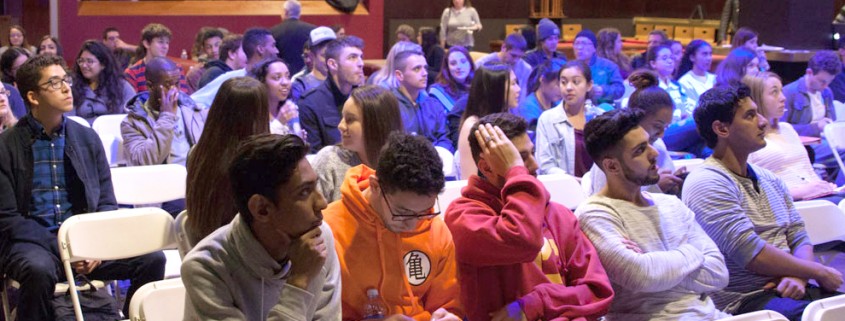USC students participate in 2016 primaries
As the Feb. 1 Iowa caucus looms closer and closer, student political organizations are gearing up for their Olympics, one where polls are measured instead of jumps and performance-enhancing caffeine is encouraged during late night campaign work.
Reza Talieh helps run USC Students for Rand Paul, a group that was recognized as a student organization last November. Talieh said effectively finding like-minded supporters can be difficult.
“Someone like Sen. Rand Paul, you run into this situation where we try to tail down people who would have supported his father [former U.S. Representative Ron Paul], and you run into this loop where people will refer me to their friends but eventually it comes into a full circle, and they’re referring me to each other’s friends. After that you’ve got to share the message,” Talieh said.
To escape this closed loop, Talieh attends auxiliary events including Incarceration Nation, an event that protests the drug war, in the attempt of finding like-minded potential supporters.
Another issue that he faces is the reputation Paul has as an “isolationist” when it comes to foreign policy. Talieh said that he would prefer the term “non-interventionist” instead.
Whereas Talieh tries to avoid mentioning this, the issue of reputation is often the first one that USC Students for Bernie Sanders addresses, says sophomore Ryan Lopez, president of the organization.
“One of the things we do is explain that Bernie Sanders is democratic socialist, and the difference between that and socialism,” Lopez said.
In order to be more efficient in their campaigning efforts, USC Students for Bernie Sanders participates in phone banking to pare down and focus on the residences that are receptive to the campaign.
“The campaign emphasizes person-to-person contact,” Lopez said.
Phone banking is also an important feature of the Rand Paul campaign. Talieh says the group can make around 300 calls in a few hours.
USC Students for Bernie Sanders live tweet alongside Bernie Sanders during the Republican debates, and form watch parties during the Democratic debates.
On-campus efforts are not limited to simple tabling. The USC College Republicans have made various efforts to engage students on campus, passing out “Hillary Wipes,” computer screen cleaners intended to satirize the email server scandal that Hillary Clinton has been criticized for the last several months. The organization also made a cake representing the national debt, making divisions that amounted to $56,000 a slice. Far from being intimidated by the amount of candidates vying for the presidency, USC College Republicans President Jacob Ellenhorn sees it as an opportunity to find the truly suitable candidate.
“Democrats only have one choice, Hillary Clinton,” Ellenhorn said.
On Jan. 12, these issues and others like it were brought into a public forum. The Jesse M. Unruh Institute of Politics, in conjunction with the Daily Trojan and the USC Political Student Assembly, held a screening of the State of the Union address, followed by a discussion panel including campaign experts and USC students. Deputy Director of the Unruh Institute Ali Bissonnette says it is events like this that are key to the institute’s goal of civic engagement.
“We try to focus our energy on big crowd events that will get a good turnout,” Bissonnette said.
These events include the Iowa caucus on Feb. 1, the New Hampshire primary and Super Tuesday, in which 14 states and one territory — American Samoa — hold either their caucus or primary election. The aim of this lunch series is to foster bipartisan dialogue.
“We want people to leave with an understanding of the other side of the argument, and to say ‘I get that perspective. I may not agree with it, but I understand it,’” Bissonnette said.
In addition to helping curate these landmark events in the 2016 election cycle, the Unruh Institute has also focused on encouraging student civic engagement by holding voter registration on campus. In the first semester, the institute was able to register 549 students and is planning on another registration drive this coming April. The institute also plans to try and help establish polling stations on campus to ensure that voting is easy as possible for USC students.

